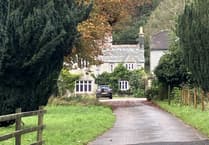Schools in the Kingsbridge and Salcombe area stand to lose almost £1.2m from their budgets by 2019, according to new figures released by the National Union of Teachers.
11 of the 12 primary and secondary schools in the area will lose money from their budgets, with only West Alvington Primary School receiving no changes to the budget, under a new funding formula designed to end the “historic post-code lottery of school funding”, according to the Department for Education.
The 11 schools in the Kingsbridge and Salcombe area that stand to lose money are Kingsbridge Community College, Salcombe Primary School, Malborough Primary School, Thurlestone Primary School, Kingsbridge Primary School, Charleton Primary School, Stokenham Primary School, East Allington Primary School, Loddiswell Primary School, Aveton Gifford Primary School and Modbury Primary School.
Kingsbridge Community College, the only secondary school in the area, stands to lose £716,612 from its budget, which amounts to £680 per pupil or the equivalent of 19 teachers.
The primary schools in the area stand to lose an average of £341 per pupil, or the equivalent of 15 teachers and one teaching assistant.
Before the 2015 general election, the Conservative Party’s manifesto promised that “under a Conservative government, the amount of funding following your child into school will be protected”.
The manifesto continued: “As the number of pupils increases, so will the amount of money in our schools and there will be a real-term increase in the schools’ budget in the next Parliament.”
But the cross-party public accounts committee published a report last week stating that the “Department for Education does not seem to understand the pressures that schools are already under.”
The report warns that funding per pupil is shrinking in real terms, with schools across England, needing to find “efficiency savings” of £3bn by 2019-20.
The committee concluded: “The actions schools take are likely to increase teachers’ workload and put at risk the quality of education.”
Matthew Shanks, is the executive principal at Education South West. The multi-academy trust runs schools across the South Hams and south Devon, including primary schools at Blackawton, East Allington, Kingswear and Stoke Fleming and the secondary schools Dartmouth Academy and Kingsbridge Community College.
Mr Shanks, who is also chair of the Devon Association of Secondary Heads, said: “Devon’s funding places it in the bottom 40 of local authorities.
“This means £290 less per pupil against the national average; against the highest funded authority outside London the difference is £900 per pupil and over £2,000 per pupil when London is included.
“There is not a school in Devon that is not considering making cuts as a result we find ourselves in.
“The Government is saying ‘we have put more money than ever before into education’ but if you look at the funding on a per pupil basis, this is simply not the case.”
Kenny Duncan, principal of Kingsbridge Community College, said: “Devon County Council is one of the lowest funded authorities in the country.
“Lots of action has been taken to improve funding and this new formula is in effect a response to this canvassing.
“With a view to making distribution more fair in Devon, the funding scheme has been flattened. The Government premise is that there’s a bit of fat in budgets and savings can be made. We disagree, any fat has already been skimmed off.
“Kingsbridge Community College is one the most efficient schools, despite being poorly funding. It will be difficult to make further cuts without hitting education. To make savings, we’re looking at what we offer, particularly for Year 11, who are currently making A-level choices.
“We’re looking at how much it will cost and what resources we have available. Unfortunately, we need between eight and 10 students to make the course viable at both GCSE and A-level, which is effecting modern foreign languages, creative subjects and BTECs courses.
“For music, we’ve only had five students wanting to study A-level, which unfortunately might make the course unviable.
“But one thing I’m not doing is looking at redundancies, but 80 per cent of my funding goes on salaries.
Mr Duncan continued: “The challenge is to deliver the curriculum the Government wants us to deliver. So we’ve begun sharing teachers with Dartmouth Academy. We’re moving to a five-period day from September, meaning that there will be more ‘contact time’ with pupils.
“But we face other problems - it’s difficult to commute here, and very difficult to recruit science and maths teachers - so we need to find ways of attracting teachers.
?“It’s a challenging time, but we’re going to keep staff morale high and keep working hard.
“We’ve written to Sarah Wollaston MP, who has been very supportive. She’s spoken with ministers and secretary of state for education, Justine Greening MP.
“The Government have said they’re listening. The main problem is that the Government haven’t taken into account inflationary elements. Staff pay rises aren’t taken into account, meaning that the cuts are bigger year-on-year.
“The NUT website is a good honest assessment of the condition schools will be in by 2020.
“It’s a perfect storm, but the bottom line is that children will definitely suffer.”
Sarah Wollaston, Conservative MP for Totnes constituency said: “The fair funding review was supposed to tackle the injustice of underfunding for schools in areas like Devon.
“Whilst the review would result in an uplift for many small rural primary schools, it is unacceptable, in my view, for larger secondary schools like Kingsbridge to lose out under the new formula.
“This is compounded by extra costs placed on schools such as the apprenticeship levy. My view is that the new formula puts too much weighting on deprivation and English as a second language and needs instead to focus on making sure that every child, irrespective of where they live, receives fair and sustainable funding for their education with weightings for deprivation and for those small schools that have higher overheads per pupil added on top.
“MPs from across Devon have made their concerns clear and I am also calling for schools to be exempt from the apprenticeship levy.”
Gary Streeter, South West Devon’s Conservative MP, has vowed repeatedly to oppose the “unacceptable” funding for schools in Devon.
Mr Streeter said: “I still oppose it. It has a negative impact on Devon schools. The Government has told me it will be tweaking the formula as a result of reaction to the consultation.
“If Devon schools will lose out, I’ll certainly vote against it.”
Kevin Courtney, general secretary of the NUT, said: “Every single MP in England has reason to be worried about our latest analysis, which shows how every constituency will be adversely affected by the Government’s recently announced proposals.
“Schools are already on their knees trying to make ends meet. Budgets have been cut to the bone and decisions such as increasing class sizes and losing staff have already been made.
“To avert this national scandal, the Government must reassess its plans and make substantial new funding an urgent priority so that all schools have sufficient money to run an effective education system.”
A Department for Education spokesman said: “The government has protected the core schools budget in real terms since 2010, with school funding at its highest level on record at more than £40bn in 2016-17. But the system for distributing that funding across the country is unfair, opaque and outdated. We are going to end the historic post code lottery in school funding and under the proposed national schools funding formula, more than half of England’s schools will receive a cash boost.
“In Devon funding would go up by over £1.5m if the proposed new funding formula was implemented.
“It is clear that there is broad consensus on the need for a fairer funding formula. We have been consulting schools, governors, local authorities and parents and will carefully consider the responses to make sure we get the formula right and every pound of the investment we make in education has the greatest impact.”
Other schools were contacted for comment, but had not responded at the time of going to press.
To view the NUT’s interactive map, visit the website at www.schoolscuts.org.uk.




